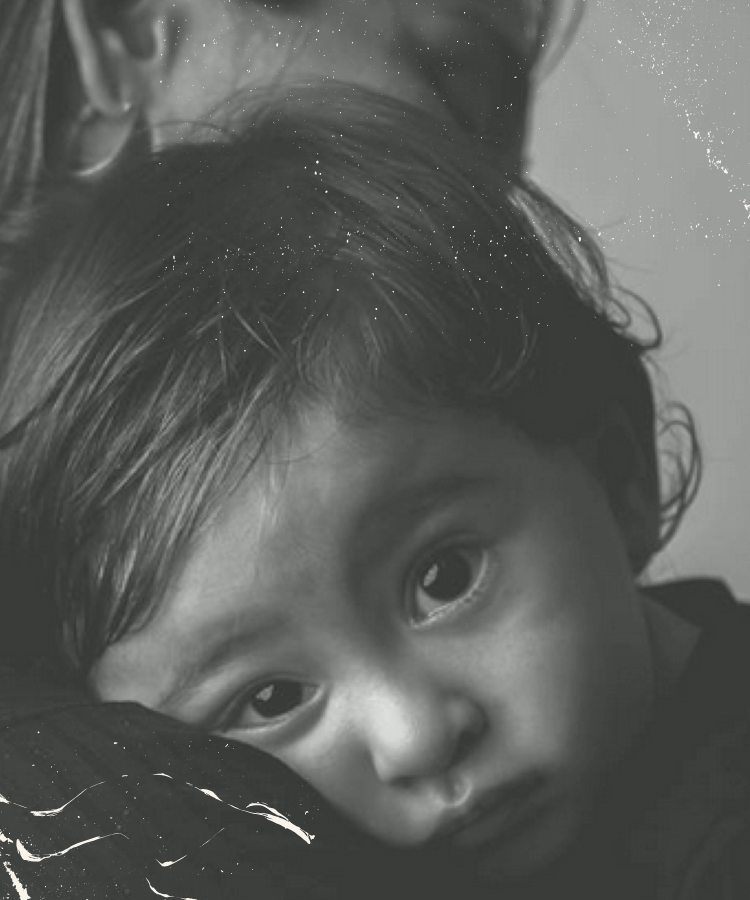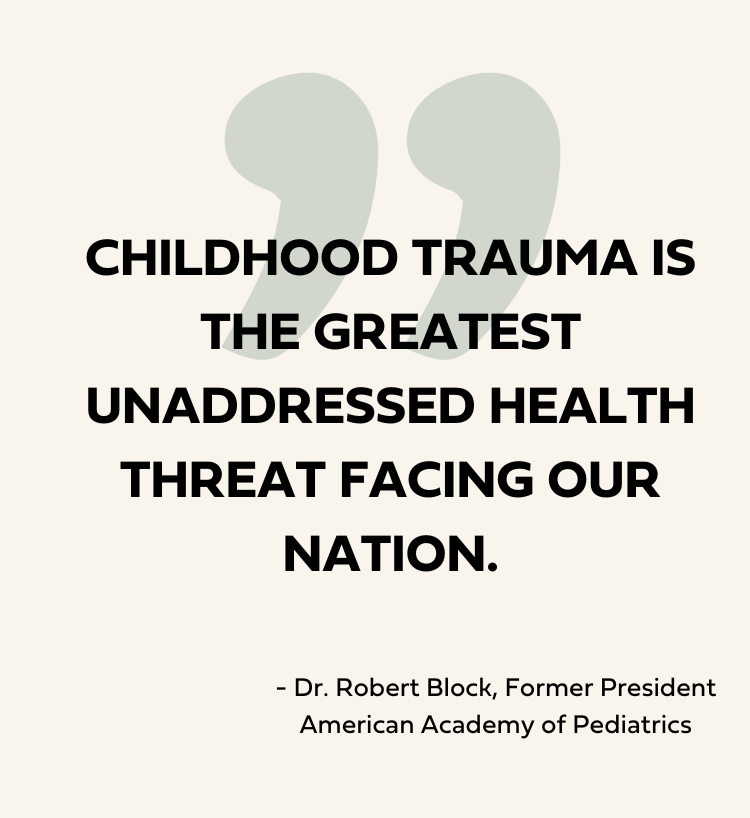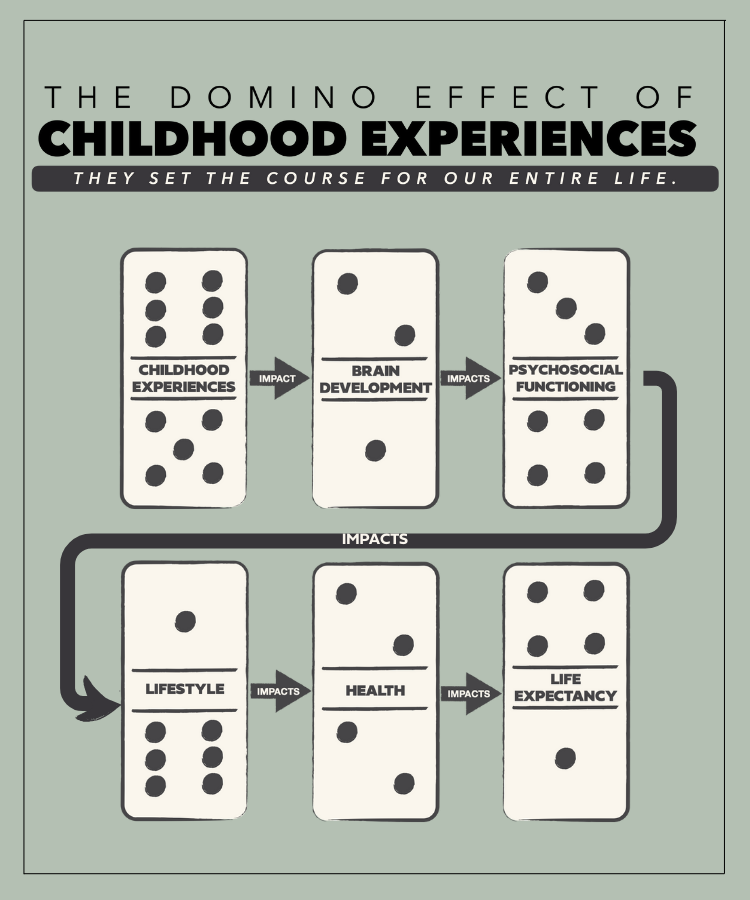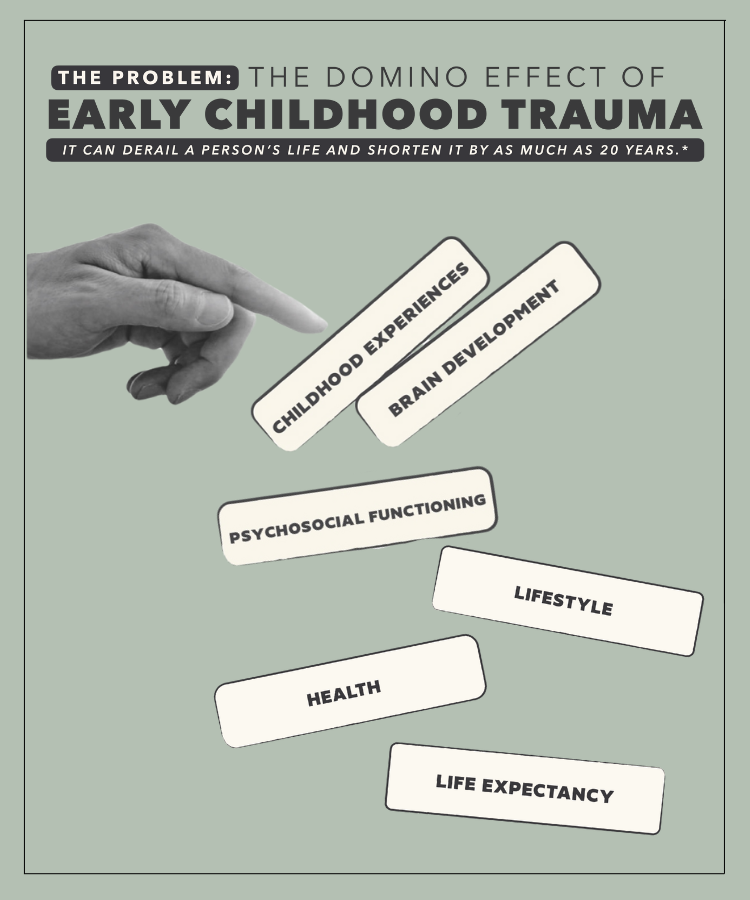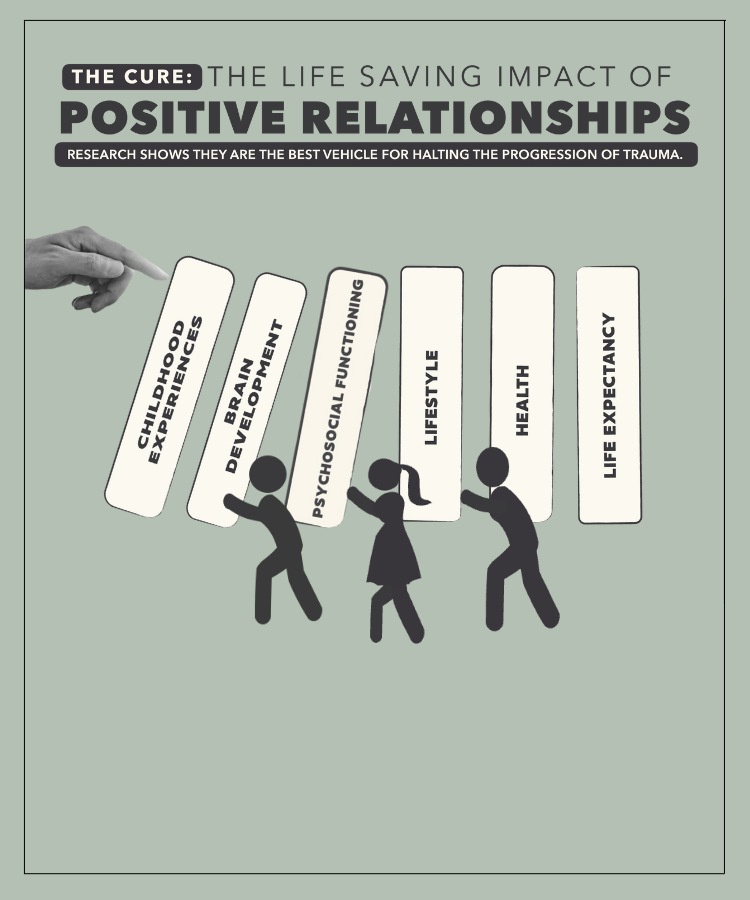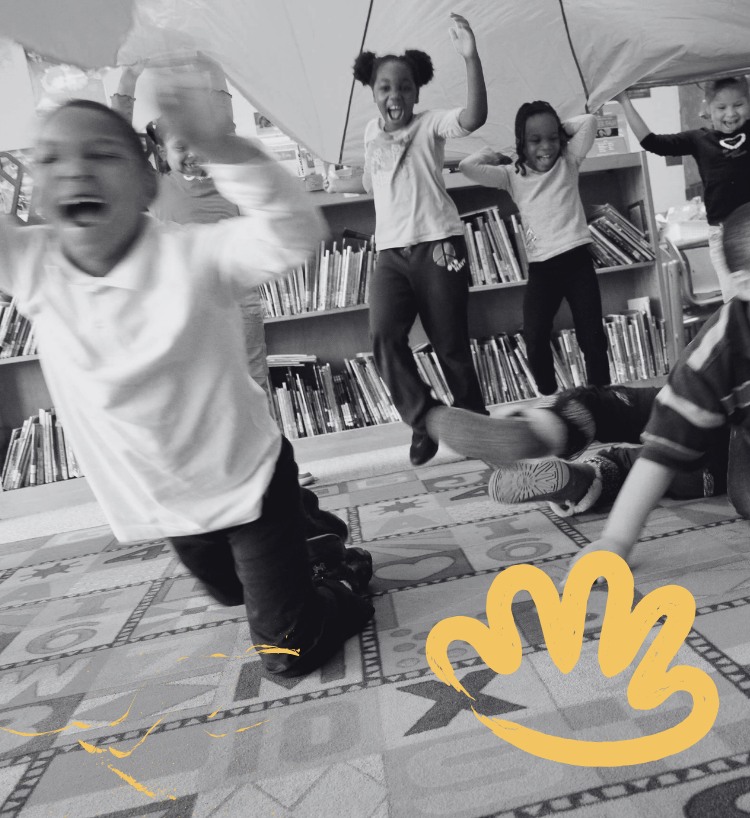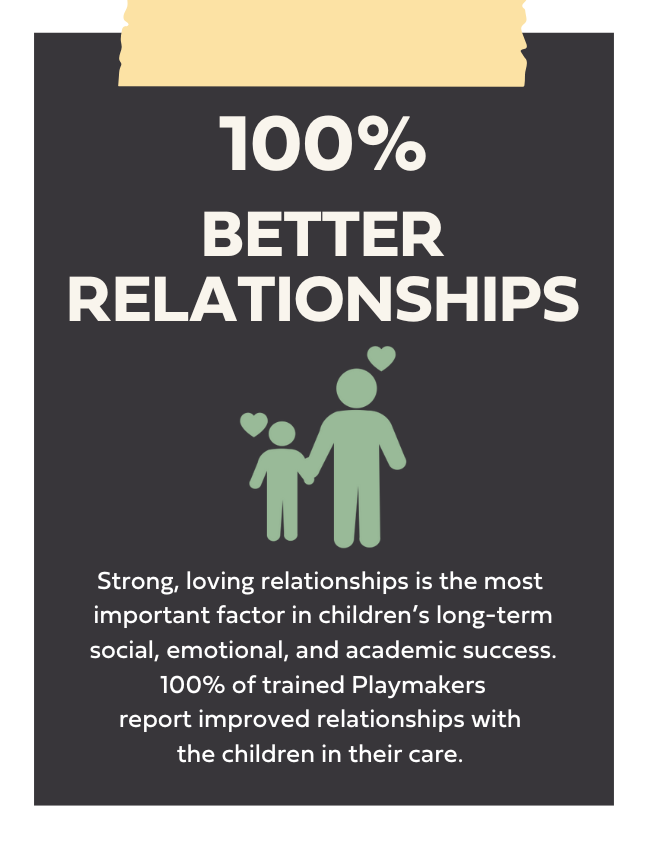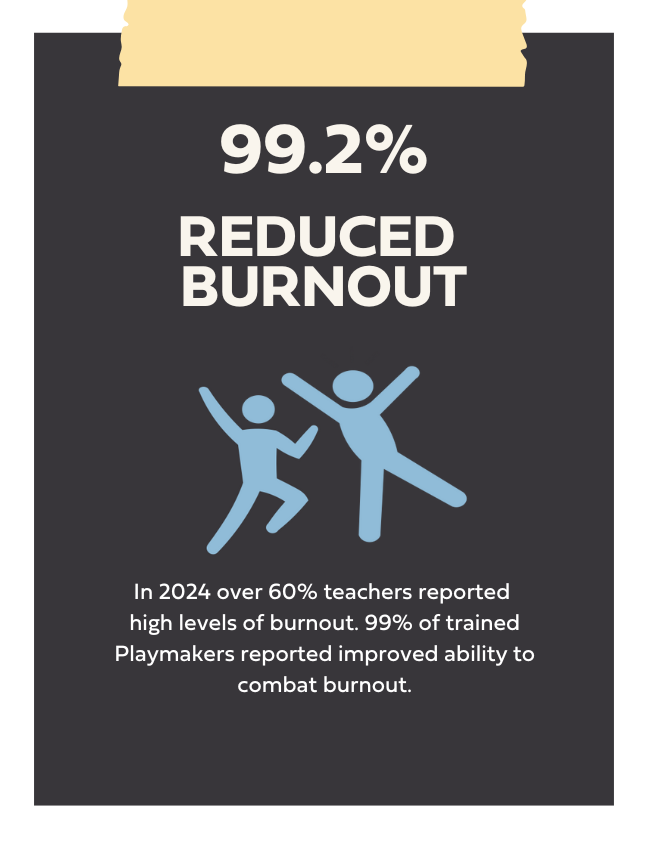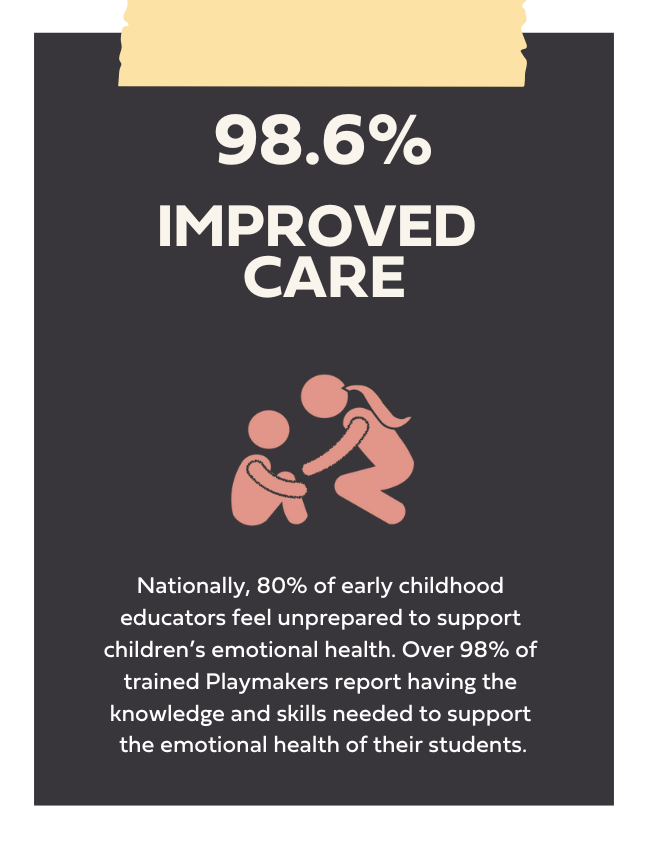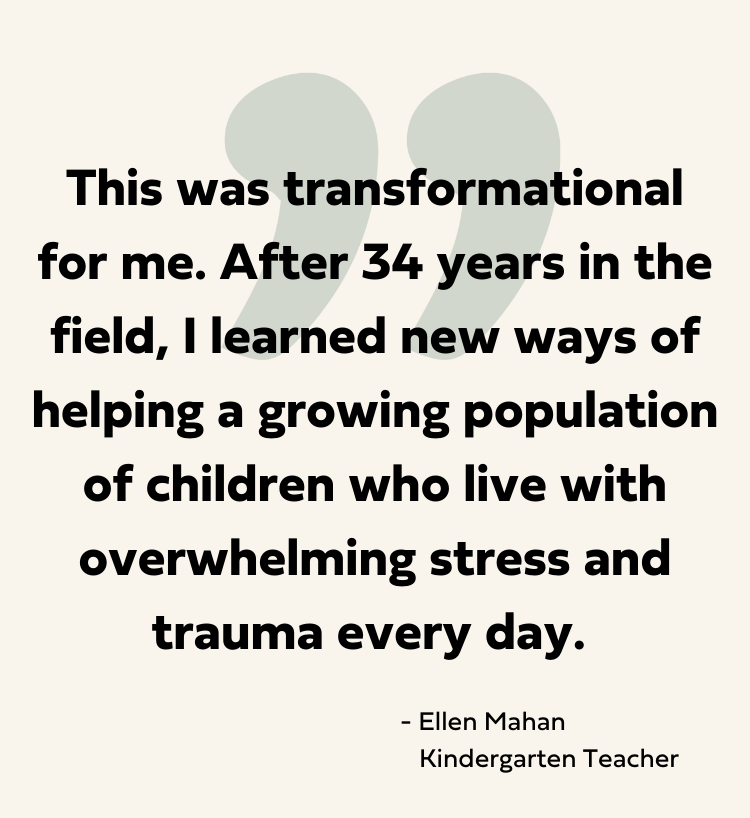Why We Exist
Why We Exist
Life isn’t easy for a lot of kids. In the United States, one in three children have experienced childhood trauma such as abuse, neglect, and household dysfunction. And according to the World Health Organization, these Adverse Childhood Experiences (ACEs) cost North America over $748 billion annually.
Terms & Conditions Content
Terms & Conditions Content
Terms & Conditions Content
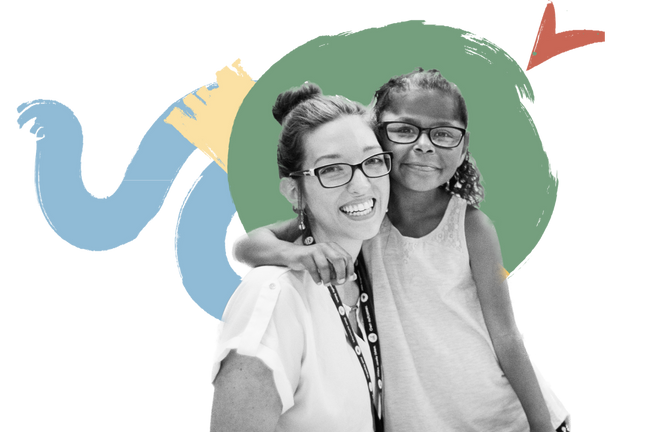
That's where we come in.
That's where we come in.
Decades of research show that strong, early relationships dramatically influence children’s brain development, social-emotional and cognitive skills, and long-term health outcomes. For over 20 years, the Playmaker Project has helped over 25,000 early childhood professionals build healing, life-changing relationships with over 1 million children.
OUR RESULTS OUR RESULTS
The data shows that our training program is producing powerful results in the early childhood field.
The data shows that our training program is producing powerful results in the early childhood field.
Terms & Conditions Content
See the Playmaker Difference
See the Playmaker Difference
Annifreed was four years old when Erin came into her life as her daycare teacher. 20 years laters, she’s still an amazing force on inspiration on her life.
Sample Terms & Conditions
Sample Terms & Conditions
